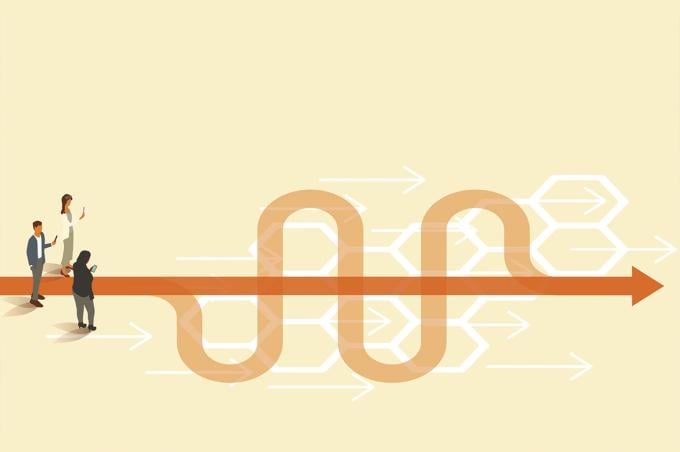Physicians’ work often has a profound effect on their personal relationships, and that impact can signal a risk of professional burnout, according to a recently published study that also details how this phenomenon varies widely by physician specialty.
For the open-access study published in Mayo Clinic Proceedings, researchers assessed the impact of work on personal relationships by surveying 7,360 physicians between in 2020 and 2021. Researchers asked several questions of physicians about burnout and how their personal relationships were affected by their jobs. They found a strong link between burnout and a moderate or high impact on personal relationships.
More than one-third of physicians surveyed said that work had at least a moderate impact on their personal relationships.
In the study, physicians were asked to rate the following statements from not at all true to completely true: “In the past year my job has …”
- Made it harder for me to nurture existing personal relationships.
- Made it harder for me to develop new meaningful personal relationships.
- Contributed to conflict in my personal relationships.
- Contributed to me feeling more isolated or detached from the people who are most important to me.
Physicians were far likelier than those working in other fields to agree with the last statement about isolation and detachment. After adjusting for other demographic and professional factors, physicians had165% greater odds of indicating the statement was at least moderately true, says the study co-written by AMA experts Christine A. Sinsky, MD, Lindsey E. Carlasare and Michael Tutty, PhD, MHA.
“The effects of close personal relationships on health are well documented,” the study says, pointing out that other studies have found that “loneliness, social isolation and living alone” increase the odds of death by between one fourth and one-third. Poor social relationships also are associated with increases in the risk of coronary artery disease incidence, stroke and new-onset depression.
Physicians also were more likely to experience burnout. Researchers found that after adjusting for a variety of factors, physicians had a 40% greater chance of burnout compared to those working in other fields. After adjusting for the impact of work on personal relationships, physicians were no more likely to have burnout, suggesting greater impact of work on personal relationships may explain the increased risk of burnout among physicians.
As the leader in physician well-being, the AMA is reducing physician burnout by removing administrative burdens and providing real-world solutions to help doctors rediscover the Joy in Medicine™.
Personal relationships are at stake
Even after adjusting for gender, age, relationship status, parenting status, work hours, call frequency and physician specialty, having a moderate impact of work on personal relationships meant a doctor had 3.77 times the odds of experiencing burnout. Meanwhile, having a high impact of work on personal relationships meant the physician had 13.59 times the odds of having at least one symptom of burnout.
Additionally, 21.4% of respondents reported that their work has a moderate impact on their personal relationships and 21.2% expressed a high impact of work on their personal relationships.
Physicians’ relationship status also played a role. For physicians who are married, 40.7% reported that work had a moderate or high impact on their personal relationships compared with 54.5% of doctors who are single.
The number of hours worked also had an impact on burnout and relationships. Fifty-three percent of physicians who worked 60 hours or more a week had personal relationships that were at least moderately impacted by work.
Physician specialty plays a role
The impact of work on physicians’ personal lives differed by medical practice specialty. The top six specialties with the highest odds of moderate or high impact were:
- Emergency medicine: 93%.
- Physical medicine and rehabilitation: 67%.
- Preventive and occupational medicine: 26%.
- Neurology: 24%.
- Family medicine: 18%.
- Internal medicine: 18%.
The physician specialties with the lowest odds of impact on their personal lives included pathology, general surgery and urology.
Other risk factors
Women physicians were 26% higher odds of being at least moderately impacted in their personal relationships and being married was associated with 41% lower odds of moderate or high impact.
Those whose youngest child was between 5 and 12 years old had 41% higher odds of impact compared to those with no children.
Additionally, each extra hour worked per week was associated with 4% higher odds of moderate or high impact on personal relationships. Meanwhile, being on call one night a week related to 34% greater odds of a moderate or high impact of work on personal relationships while being on call two or more nights per week resulted in 46% greater odds.
How to move forward
The “markedly higher” impact of work on personal relationships “in physicians than in workers in other fields suggests the issue is a cultural problem in organizations and the profession rather than a problem with individual physicians. A workplace cultural problem calls for organization- and system-level solutions,” says the study.
“Strategies … may include those that optimize workload, enhance team-based care, reduce clerical burden, and improve accuracy of surgical scheduling to enable predictable workday ending times, with in-box coverage systems to allow vacation time unfettered by work responsibilities,” the study adds.




